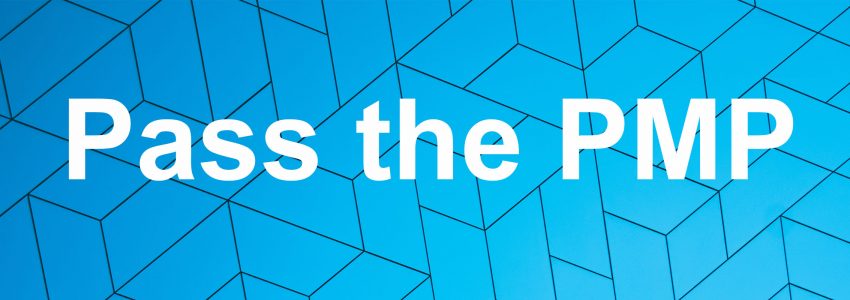The Project Management Professional (PMP) certification is increasingly becoming a pivotal milestone in the careers of project management professionals. Recognized globally, it not only enhances professional credibility but also elevates your career in project management, opening doors to new opportunities and higher salary prospects. The PMP certification, governed by the Project Management Institute (PMI), is a testament to your commitment to excellence in managing projects and mastering the complexities of their successful execution.
Preparing for the PMP exam is a journey that requires dedication, a deep understanding of a wide range of management concepts, and a strategic approach to learning. This exam evaluates your ability to apply project management knowledge in real-world scenarios, making it one of the most challenging professional exams. Its structure, predominantly based on the PMBOK® Guide—Fifth Edition, encompasses a comprehensive range of topics, ensuring that certified professionals are well-equipped to handle various aspects of project management.
As the demand for skilled project managers continues to grow in industries worldwide, the significance of achieving PMP certification has never been more pronounced. Organizations now seek professionals who have the theoretical knowledge and practical skills to drive projects to successful completion. The PMP certification, thus, serves as a benchmark for these competencies, distinguishing certified individuals in the competitive job market.
A thorough and well-structured preparation is the key to this esteemed certification. It involves navigating through the extensive materials covered in the PMBOK® Guide, understanding the intricacies of project management principles, and applying this knowledge in exam-like conditions. With the proper preparation and resources, achieving a PMP certification becomes an attainable goal, paving the way for professional growth and recognition in project management.
As we delve deeper into this guide, we’ll explore practical strategies and resources to aid your PMP exam preparation, ensuring you are well-prepared to embark on this challenging yet rewarding journey.
What is the PMP Exam
The Project Management Professional (PMP) exam, a rigorous assessment conducted by the Project Management Institute (PMI), is designed to evaluate a candidate’s competence in managing projects effectively. This exam is a vital component of earning the PMP certification, a globally recognized credential that validates a professional’s expertise and knowledge in project management. Understanding the structure and requirements of the PMP exam is crucial for anyone aspiring to gain this prestigious certification.
Central to the PMP exam is the PMBOK® Guide—Fifth Edition, which serves as its primary reference. The PMBOK® Guide provides a comprehensive framework covering the fundamental methodologies, practices, and terminologies used in project management. The exam is structured to test a candidate’s understanding and application of this guide across various scenarios and real-world project challenges.
The PMP exam consists of 180 multiple-choice questions, which candidates must complete within 230 minutes. The questions cover five critical domains of project management: Initiating (13%), Planning (24%), Executing (31%), Monitoring and Controlling (25%), and Closing (7%). Each domain tests the candidate’s ability to apply project management principles and practices in effective project execution.
The exam questions are a mix of theoretical knowledge and practical application. They assess a candidate’s ability to analyze situations, make informed decisions, and apply project management principles effectively. This includes understanding project requirements, managing constraints, dealing with stakeholder expectations, and ensuring project delivery within the agreed-upon scope, time, and budget.
Preparing for the PMP exam requires thoroughly understanding the PMBOK® Guide and other supplementary materials and resources. Candidates must memorize key concepts and understand how to apply them in practical situations. This comprehensive understanding sets the PMP apart as a certification—it’s not just about knowing project management; it’s about applying it effectively.
For those embarking on the journey to become PMP certified, familiarizing themselves with the exam’s structure, content areas, and question formats is the first crucial step. This foundational knowledge lays the groundwork for practical study and preparation strategies, ultimately leading to success in the PMP exam.
PMP Exam Prep Boot Camp: Your Path to Success
A PMP Exam Prep Boot Camp offers a comprehensive training solution for professionals gearing up to take the PMP exam. Designed with a focus on the content from the “A Guide to the Project Management Body of Knowledge (PMBOK® Guide)—Fifth Edition” and other sources, these courses provide the essential preparation needed to excel in the PMP and CAPM exams. The Boot Camp stands out by covering the exam content and using PMI® terminology, ensuring that participants are well-versed in the language and concepts of the PMI.
A unique aspect of PMP Exam Prep Boot Camps is their focus on catering to different learning styles. Recognizing that individuals absorb information differently, the course incorporates various learning tools and study aids. Whether you are a visual, auditory, or kinesthetic learner, the Boot Camp has resources to match your learning preference. The instructor will guide you through a self-discovery process, allowing you to identify your learning styles, and you will learn how to apply study approaches that best suit your strengths, enhancing the effectiveness of your preparation.
The course is rich in content and interactive elements. It includes the PMBOK® Guide-Fifth Edition as a core part of the study material, supplemented by over 600 practice questions that comprehensively understand the expected exam questions. The PMP Exam prep study guides, supplemented with MP3 audio downloads, cater to those who learn better through listening and repetition. Additionally, the course includes exercises to reinforce PMP and CAPM exam concepts, making learning active and engaging.
The course offers handy reference charts and exercises for memory retention and recall. Another notable feature is the electronic flashcards accessible through MyGK, providing a convenient and effective tool for revision and self-testing.
The PMP Exam Prep Boot Camp is not only about content delivery; it’s a holistic learning experience that prepares candidates thoroughly for the exam. The course’s structure ensures you receive the guidance and resources necessary to approach the PMP exam confidently, regardless of your learning style. For those seeking a structured, comprehensive, and flexible approach to PMP exam preparation, the Boot Camp presents an ideal choice, setting the stage for success in achieving PMP certification.
Innovative Learning Approach in Boot Camp
The PMP Exam Prep Boot Camp, designed explicitly for the PMP and CAPM exams, stands out with its innovative approach to learning, catering to the unique needs of different learners. This course, deeply rooted in the content of the PMBOK® Guide—Fifth Edition and other vital resources, goes beyond traditional teaching methods. It targets the three primary learning styles: visual, auditory, and kinesthetic, ensuring that every participant can engage with the material most effectively.
Visual learners benefit significantly from the Boot Camp’s rich graphical materials, diagrams, and charts. These resources help visualize complex project management concepts, making them easier to understand and remember. For auditory learners, the course offers supplemental MP3 audio downloads. These audio resources are perfect for reinforcing learning through listening, enabling participants to absorb information even when they are on the move.
Kinesthetic learners, who grasp concepts better through hands-on experience, will also benefit. The course includes various interactive exercises that simulate real-life project management scenarios. These activities solidify the theoretical knowledge gained and enhance the practical application of project management principles.
Another remarkable aspect of the Boot Camp is its customized learning pathway. Participants can identify their predominant learning style with a simple tool in the study guide. Based on this identification, the course offers tailored suggestions for study approaches that leverage the strengths of each learning style. This personalized approach ensures learners can optimize their study time and maximize their understanding of the course material.
Moreover, the Boot Camp is not just about individual learning. It fosters a collaborative environment where participants can share insights and learn from each other’s experiences. This collaborative learning aspect is crucial because it brings diverse perspectives and enriches the learning experience.
The PMP Exam Prep Boot Camp’s innovative approach makes it a highly effective program for PMP and CAPM exam preparation. By addressing the diverse learning needs of participants and providing a variety of study tools, the course creates an inclusive and dynamic learning environment that significantly enhances the chances of exam success.
Comprehensive Course Materials
The PMP Exam Prep Boot Camp is notable for its comprehensive course materials, meticulously designed to prepare candidates for the PMP and CAPM exams. Understanding the depth and complexity of the PMBOK® Guide—Fifth Edition, the course provides an array of study aids and tools, ensuring a holistic approach to mastering the essentials of project management.
Central to the Boot Camp’s resources is the PMBOK® Guide—Fifth Edition, serving as the foundational text for the course. This guide is crucial for understanding the framework and methodologies that underpin the PMP exam. In addition to the guide, participants can access over 600 practice questions. These questions are not only extensive in number but also varied in type, closely mirroring the format and complexity of the actual exam. They provide an invaluable opportunity for candidates to test their knowledge and assess their readiness for the exam.
Further enhancing the learning experience are the PMP exam prep study guides. These guides, supplemented with MP3 audio downloads, offer an alternative and effective way of learning, particularly beneficial for auditory learners. The audio downloads enable learners to reinforce their knowledge through listening, making it possible to study even when they are engaged in other activities.
The course also includes exercises to reinforce key PMP and CAPM exam concepts. These exercises are not mere rote memorization tasks but are crafted to deepen the understanding and application of project management principles in various scenarios.
Another valuable component of the Boot Camp is the provision of handy reference charts. These charts serve as quick go-to resources for revising essential concepts and methodologies. Additionally, exercises to increase memory recall are integrated into the course, helping participants retain and retrieve information more effectively during the exam.
Convenient and Accessible Learning
The PMP Exam Prep Boot Camp is designed with the modern learner in mind, offering convenience and accessibility that cater to a diverse range of professional schedules and learning preferences. This innovative course provides a flexible and comprehensive approach to PMP and CAPM exam preparation, ensuring that each participant can engage with the material effectively, regardless of their daily commitments.
One of the standout features of the Boot Camp is its self-paced nature. Recognizing that professionals juggling work and personal responsibilities might find it challenging to adhere to a rigid schedule, the course offers 12 months of access from the purchase date. This extended access period allows learners to plan their study time around their schedules, allowing them to absorb the material at a pace that suits their learning speed and lifestyle.
Moreover, the Boot Camp is interactive and engaging. It doesn’t merely present information; it invites active participation and deeper engagement with the content. This approach is crucial in solidifying the understanding of complex project management concepts and principles essential for the PMP and CAPM exams.
The course also leverages technology to enhance the learning experience. Participants have access to electronic flashcards available through MyGK, a feature that modernizes the traditional study method of flashcards. These digital flashcards are an excellent tool for quick, on-the-go revision, allowing learners to conveniently test their knowledge and recall important information.
This blend of flexibility, interactive content, and technological integration makes the PMP Exam Prep Boot Camp an exemplary model for contemporary professional development courses. It respects professionals’ time constraints and varied learning styles, offering a practical and adaptable PMP and CAPM exam preparation solution.
In summary, the PMP Exam Prep Boot Camp’s approach to learning is not just about covering the required material; it’s about doing so in a way that is accessible, engaging, and considerate of the needs of today’s busy professionals. This accessibility and convenience ensure that every participant can thoroughly prepare for the PMP and CAPM exams without compromising their professional or personal responsibilities.
Requirements and Eligibility for the PMP Exam
Enrolling in the PMP Exam Prep Boot Camp is a significant step towards achieving PMP or CAPM certification. However, before starting this course, candidates must know and fulfill specific prerequisites and eligibility criteria. The PMP Exam Prep Boot Camp prepares candidates for the exam and satisfies the requirements for contact hours of instruction, a vital part of the certification process.
The first step in the journey towards PMP or CAPM certification involves meeting specific educational and experience requirements set by the Project Management Institute (PMI). The PMP certification includes:
- A secondary degree (high school diploma, associate’s degree, or the global equivalent).
- Thirty-six months leading and directing projects.
- Thirty-five hours of project management education.
Alternatively, without a four-year degree, the requirements include:
- High School or Secondary School Diploma
- Sixty months leading and directing projects
- Thirty-five hours of project management education
Most PMP Exam Prep Bootcamp attendees have substantial project management experience before enrolling in the course. This experience ensures that participants can fully comprehend and apply the concepts taught in the boot camp.
For those who may still need to gain the required project management experience, it is advisable to undertake foundational courses such as IT Project Management or Project Management Fundamentals. These courses can provide a solid base in project management principles and practices, better-preparing individuals for the advanced learning offered in the Boot Camp.
While the PMP Exam Prep Boot Camp is an excellent resource for preparing for the PMP and CAPM exams, it is crucial for candidates first to ensure they meet the eligibility criteria set by PMI. Checking the eligibility involves having the requisite educational background and project management experience. Once the candidate meets these prerequisites, the Boot Camp is an effective and comprehensive pathway to achieving certification, equipping candidates with the knowledge and skills necessary to excel in the exams.
Preparing for PMP Exam Day
As the PMP Exam Prep Boot Camp concludes, candidates approach the pivotal moment of their certification journey – the exam day. Proper preparation for this day is as critical as the months of study preceding it. The final preparation phase involves consolidating knowledge, refining test-taking strategies, and ensuring mental readiness for the exam.
Reviewing key concepts and areas that pose challenges is crucial in the days leading up to the exam. Candidates should focus on revising topics heavily weighted on the exam and those they find most challenging. This period is not for learning new material but for reinforcing understanding and confidence in already covered subjects.
Time management plays a significant role in the success of the exam. Candidates should simulate the exam environment by practicing full-length tests under timed conditions. This exercise familiarizes them with the pressure of answering 180 questions in under four hours and helps them develop a strategy for pacing themselves throughout the exam. Identifying the type of questions that consume more time versus questions that require more time is vital for efficient time allocation during the exam.
Mental preparation is equally important. Candidates should focus on stress-reduction techniques and ensure they are well-rested before the exam day. Deep breathing, visualization, or light exercise can help maintain a calm and focused mindset. A good night’s sleep before the exam day is essential for optimal cognitive function.
On the exam day, arriving at the testing center early is essential to avoid any last-minute stress. Candidates should ensure they have all the documents and materials required for the exam. During the exam, taking scheduled breaks can help maintain concentration and avoid fatigue.
Remember, the final preparation for the PMP exam involves:
- A strategic review of the study material.
- Practicing time management through simulated exams.
- Ensuring mental and physical readiness.
This comprehensive approach to preparation will boost candidates’ confidence and significantly enhance their chances of success on the exam day.
Executive Summary
Embarking on the journey to achieve PMP certification is a testament to a professional’s dedication to excellence in project management. The PMP Exam Prep Boot Camp will guide candidates through this challenging yet rewarding path, equipping them with the knowledge, skills, and confidence required to succeed in the PMP and CAPM exams.
As candidates conclude their preparation with the Boot Camp, they stand at the threshold of a significant professional milestone. The journey to this point is not just about mastering the PMBOK® Guide or acing practice tests; it’s about evolving as a project management professional, gaining a deeper understanding of the intricacies of managing successful projects, and being ready to apply these skills in real-world scenarios.
The PMP certification opens a plethora of opportunities in the project management field. It is a recognition of professional expertise and a badge of honor that sets certified individuals apart in the job market. This certification is highly regarded globally and is often a critical factor in career advancement, offering access to more prominent projects, higher responsibilities, and potentially increased financial rewards.
For those who have diligently followed the course and are on the cusp of taking the exam, it’s important to remember that the PMP exam is as much a test of endurance and application as knowledge. The strategies, insights, and understanding developed during the Boot Camp will be invaluable assets in the exam. However, the accurate measure of success will be thinking critically, applying knowledge pragmatically, and maintaining composure under exam conditions.
Finally, the PMP Exam Prep Boot Camp is more than just a preparatory course; it is a comprehensive journey that transforms a project management enthusiast into a professional ready to take on the challenges of the PMP exam and beyond. As candidates step into the exam, they should carry the knowledge, skills, and confidence the course fosters, ready to achieve the success they have been diligently working towards.



